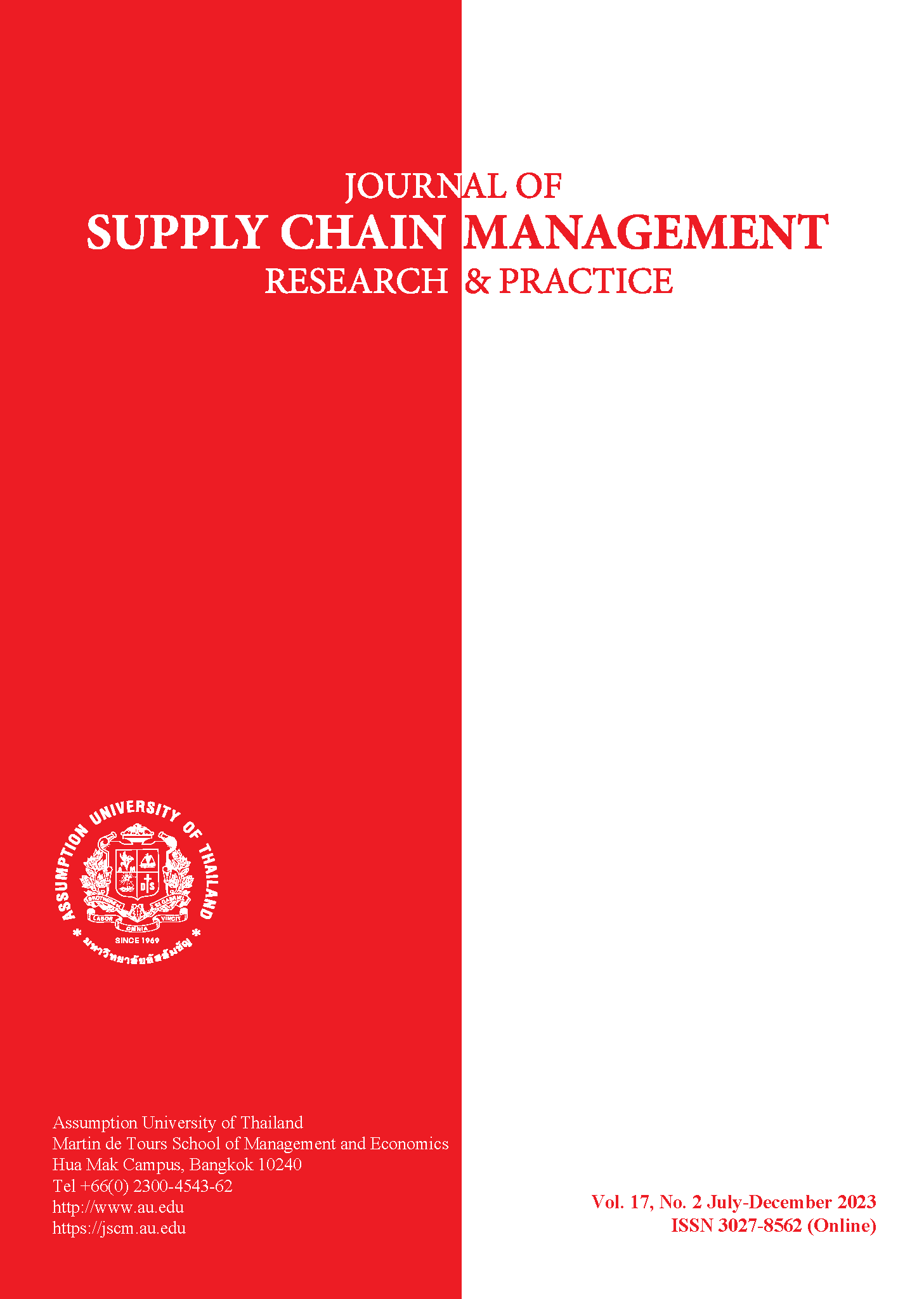A SERVICE DESIGN FOR AN AIR CARGO BUSINESS
Abstract
The aim of this research is to investigate the export activities of a logistics provider, specifically an air freight forwarder, to identify its strengths and weaknesses in the service it provides to its customers. This was part of the focal company's adoption of the Customer Relationship Model (CRM) approach. Ninety-two of this focal company's air cargo customers from the electronics industry were selected for a segmentation process using the Kansei Affective Engineering K-mean methodology, which measures feelings. The Quality Function Deployment (QFD) approach was used to identify the customers' relevant types of service (e.g. handling of complaints), and the Analytic Hierarchy Process (AHP) model was used to prioritize these customer needs. Two customer groups were generated by this methodology. In group one, four customers are classified as key customers, with similarity of characteristics. In group two, the remaining eighty-eight customers are classified as general customers. These segmented groups of customers were reviewed by four experts of the focal company. They agreed with the clustering result since it is similar to the company strategy for customer relationship. This clustering finding will help the company in improving its services for each segmented customer group, and consequently in improving its competitive advantage, in serving existing customers according to their needs, and in attracting more of their orders as well as attracting new customers. Thus, the QFD methodology along with AHP is the foundation on which to build appropriate logistics services through this better understanding of customer requirements, in line with the CRM concept.


